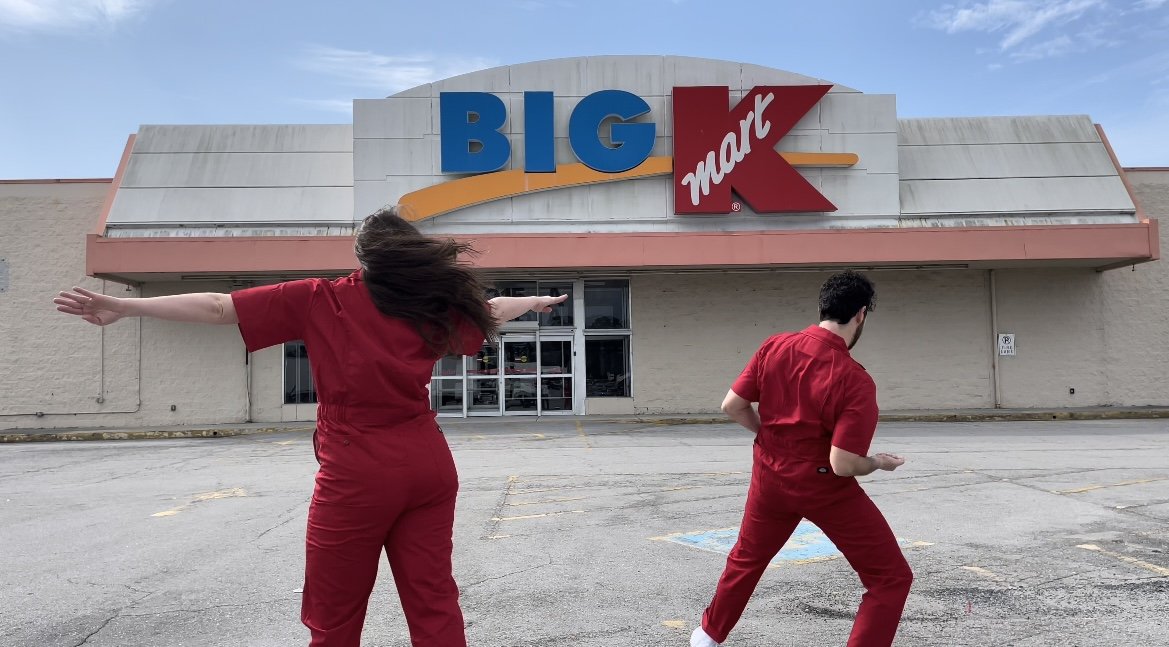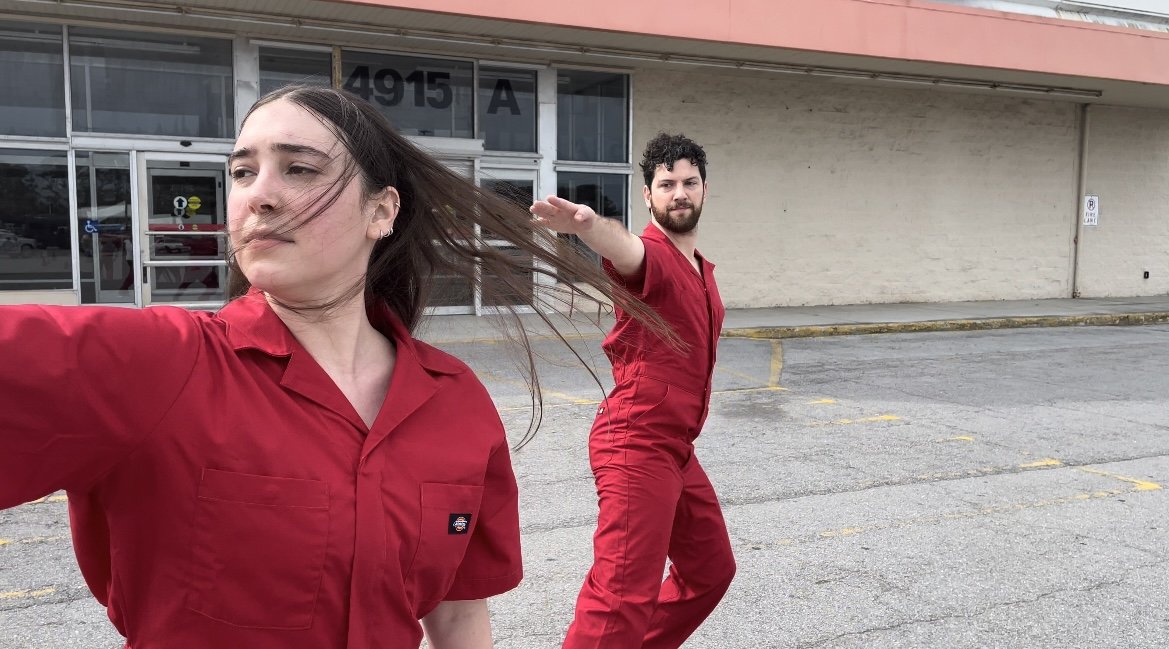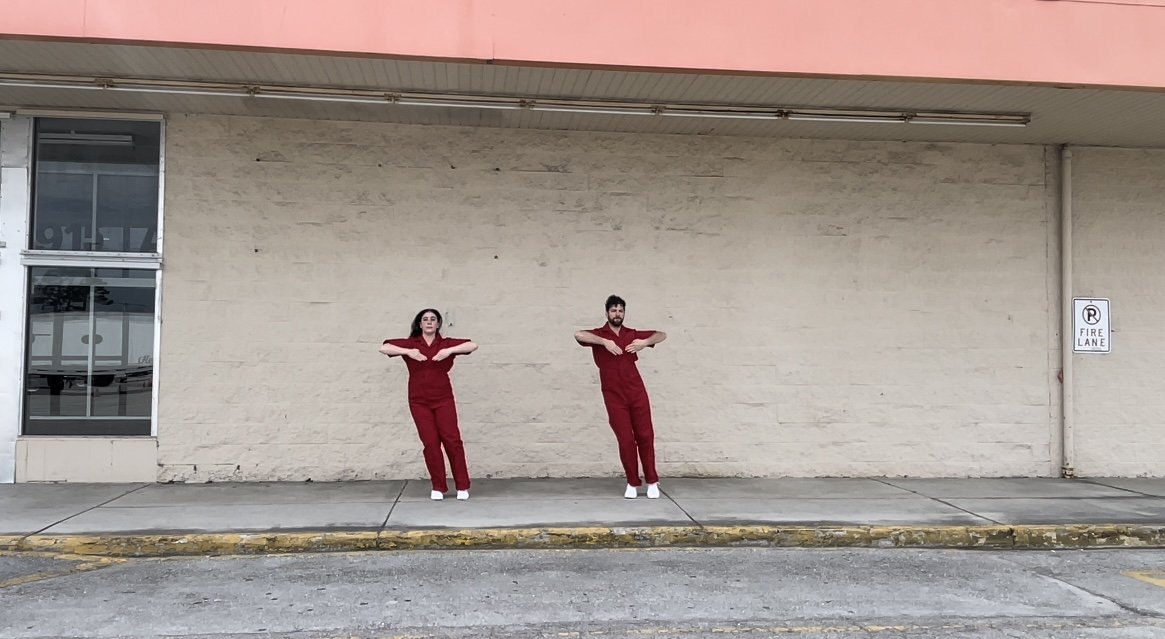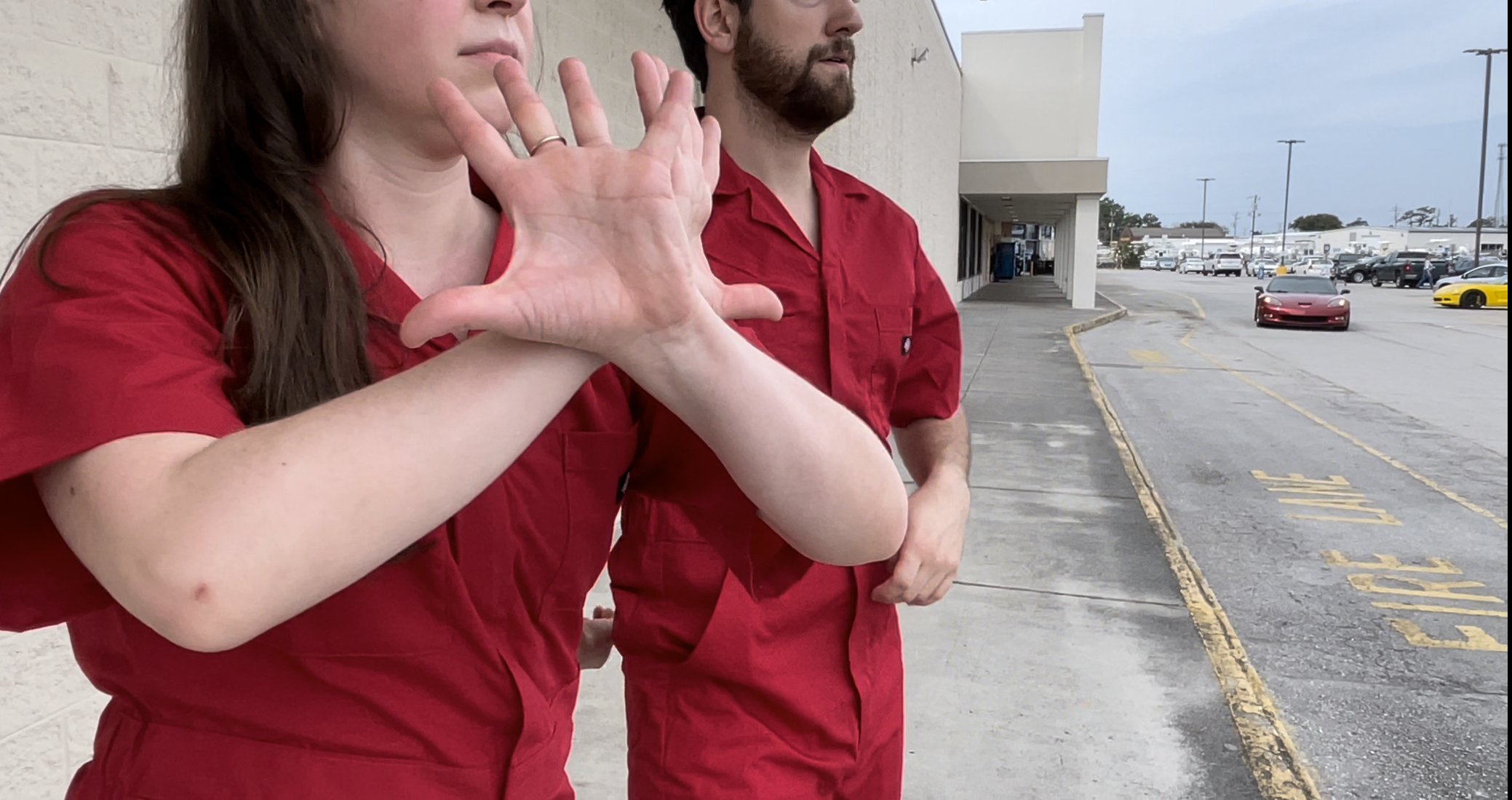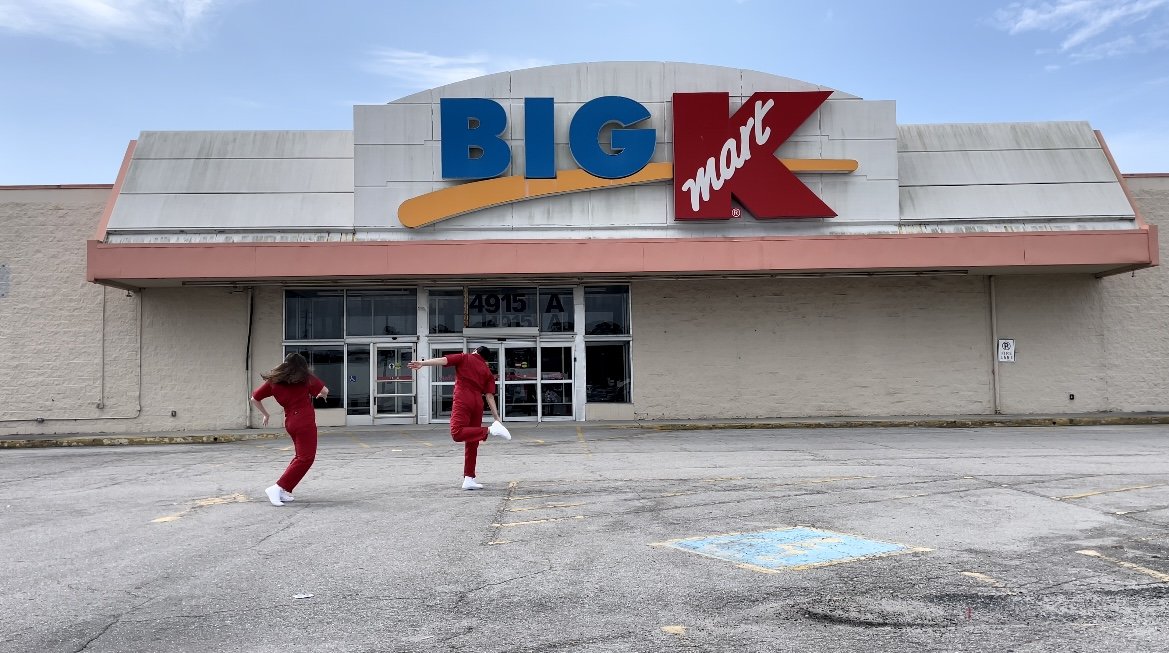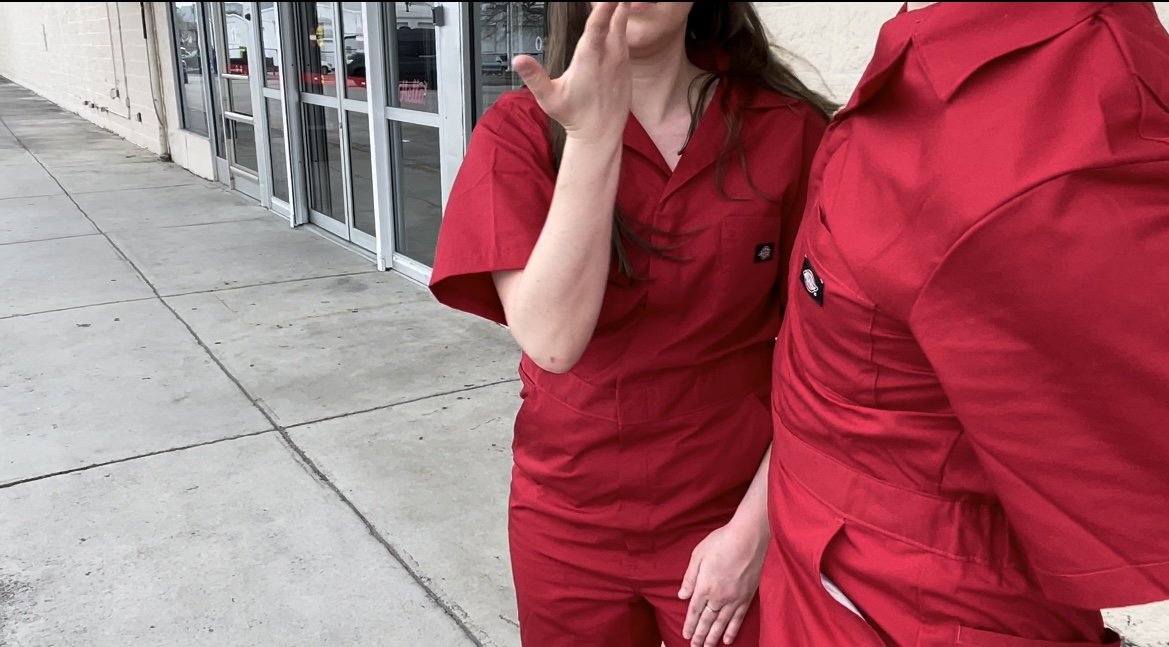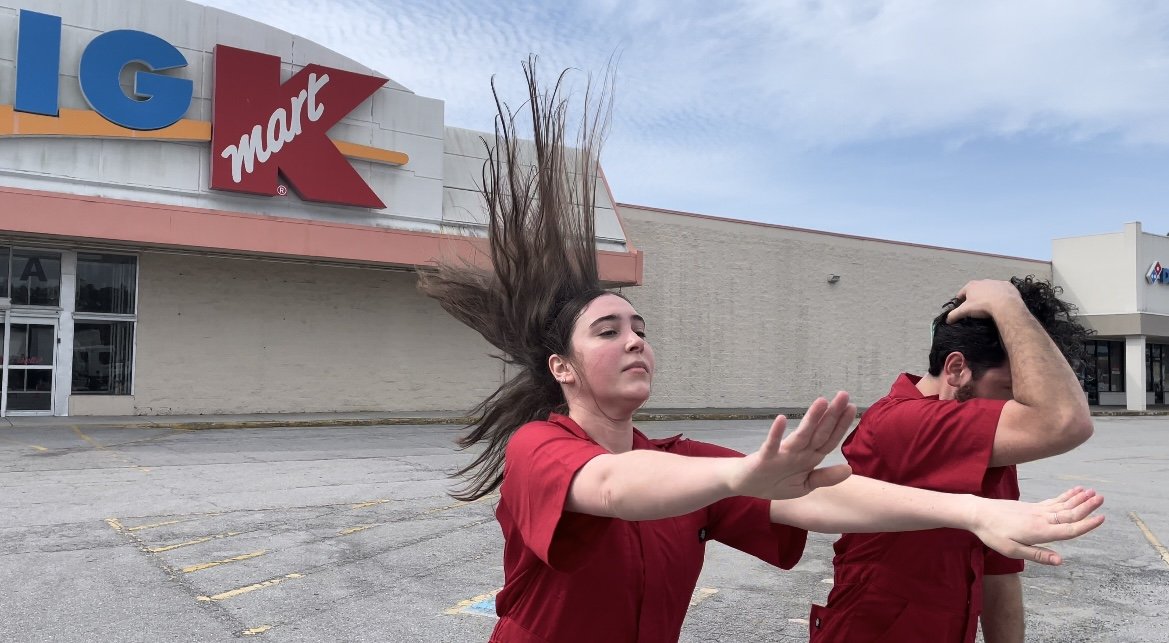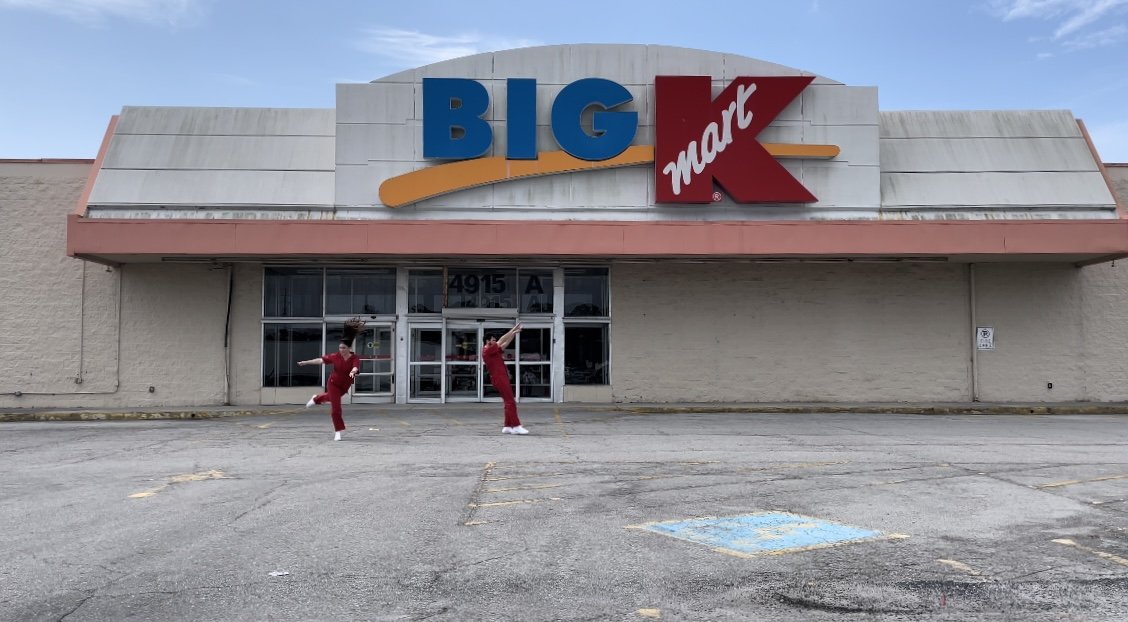UNCONVENTIONAL DANCE: Big Kmart
BIG Kmart Newport, NC
March 25th, 2022
Cords of Community Film Festival May 15th 2022
Mobile Dance Film Festival July 29th 2022
Directed, edited, & performed by Nattie Trogdon + Hollis Bartlett
Cinematography & additional direction by Debbie Trogdon
Special thanks to the Carteret Community College's Truck driving class for their sound + support
Filmed on the the unceded homelands of the Lumbee and Neusiok tribal nations. We make this acknowledgement to honor and respect the many diverse Indigenous peoples still connected to these lands, and encourage all non-Indigenous people to consider how we can be better stewards of this land.
We gratefully acknowledge that this production was made possible in part through a residency grant offered by SMUSH Gallery, Monira Foundation, and Mana Contemporary and through an ongoing residency at MOtiVE Brooklyn.
A bright red, larger than life, “K” illuminates the parking lot off highway 64. Tucked in behind the Blockbuster- its parking lot is vast, aisles are warmly lit, blue light specials are flashing, and it’s red shopping carts are calling to be climbed on and ridden fearlessly and joyfully.
It seems so strange to have such an attachment to a place that’s not my home nor bears any connection to my ancestral DNA; it stands as a big concrete monument of corporate commercialized consumerism enticing the masses with cheap goods and catchy commercials.
Growing up in a rural “city” (although I believe the word city is very generous considering most of Asheboro is country farmlands, old hosiery factories, and wild forests) there wasn’t much to see or do or experience. Smack dab in the middle of Randolph County, people are born and raised and die here. Everyone knows each other or are probably kin - or related in someway. It’s a ‘church on Sunday’, ‘racetrack on Saturday’ type of place and because it’s the south - its history is dabbled with prejudice, economic hardship, and a deep-seated refusal to change the way of life. People here are as country as a baked bean sandwich and as happy as a pig in mud with the way things are.
For me, Kmart symbolized a way out- a place that was different and more modern. A store that had locations all across the country, even in New York City. A place where diverse people gathered to shop and converse about their daily lives and lived experiences - where I could be seen for who I wanted to be and not where I came from. For me it symbolized hope and big cities and being able to buy whatever and one day getting out of this rural, small-minded town. It also was a place of love - the love and deep connection between a single mother and her only child. A mother who did all that she could to provide a way out for her daughter - including sacrificing her dreams and wants in the world. A place where the two of us could forget about the worries of trying to survive the everyday - where she and I could treat ourselves to matching shoes and leopard pants and be silly together.
“Spaces, regardless of how silly or generic or exploitative they may be to our capitalist society, have so much feeling and nostalgia tied to them. Spaces shape who we are, or were, or want to be.”
Kmart’s brick-and-mortar stores don’t exist anymore, there are only 4 remaining in the U.S. Their goods - Route 66 jeans, washers and dryers, Disney clothing - live in the virtual space (much like our dances currently). Unable to keep up with the low-prices of other stores like Walmart and the Target, Kmart declared bankruptcy in 2002 and shortly after, began closing its nation-wide stores. Part of this was due to its failure to modernize with new technology and its reputation as a place that was so bland and common it appealed to everyone and no-one. Usually located in a strip mall - a pervasive model of autonomous stores clustered together with vast asphalt and concrete parking lots, their mere existence snuffing out the local downtowns shops - Kmart is now part of the graveyard of once popular discount shopping destinations such as Payless shoes, Borders Bookstore, and Sports Authority.
This abandoned Kmart in Newport, NC is one of the only ones I’ve seen still intact. Its massive parking lot now used for car shows, tailgating, a vaccination clinic during the 2021 part of the Covid-19 pandemic, and a practice area for the Carteret Community College Truck driving school. The members of the driving school cheered us on from their lawn chairs as they watched us whip ourselves in furious and exhaustive dancing around the Kmart building and parking lot. These truckers became our audience and confidants throughout this process. Joe “from Long Island”, as he described himself, spoke to us about his migration down south, his 6 kids who he loves and cares for dearly and his happiness with a slower more relaxed pace of life in North Carolina.
Spaces, regardless of how silly or generic or exploitative they may be to our capitalist society, have so much feeling and nostalgia tied to them. Spaces shape who we are, or were, or want to be. They are gathering places for communal needs and for communal connection. And that’s what excites us about this vast project - UNCONVENTIONAL DANCE - we are embarking on. Communal at its roots, stripping away the decades of white-washed appropriation - dance is to be shared with each other. To quote Bread and Puppet Theater’s Why Cheap Art? manifesto - “People have been thinking too long that art is a privilege of the museums & the rich. Art is not business. It does not belong to the banks & fancy investors. Art is food. You can’t eat it but it feeds you. Art has to be cheap & available to everybody. It needs to be everywhere because it is the inside of the world.”
- Nattie
